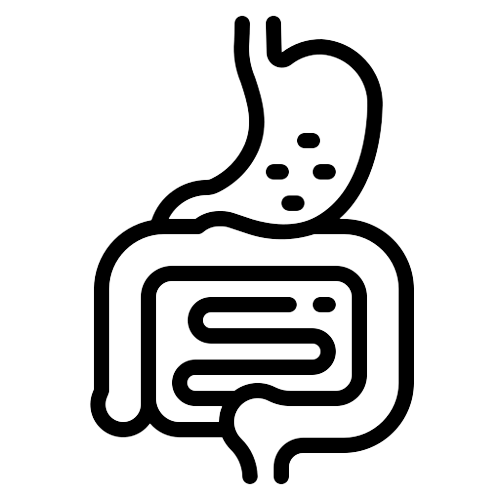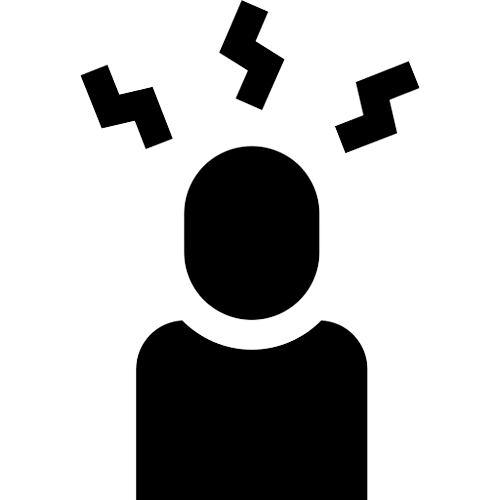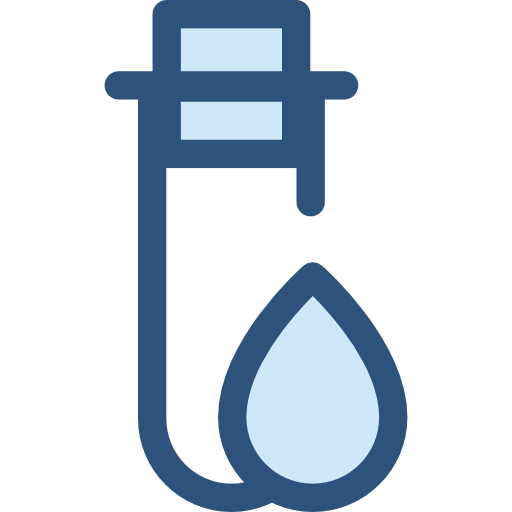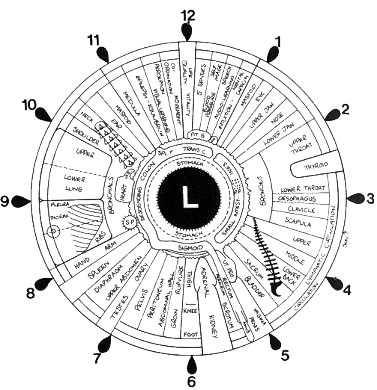Hypothyroidism and anxiety affects too much a normal life. Hypothyroidism affect your mood while anxiety affects your daily routine.
The topic of hypothyroidism and anxiety is beyond complex. Trying to consume everything at once would be like trying to drink from a fire-hose. Instead, this post will be divided into parts as we peel back the many layers of anxiety and show you how you can overcome it.
Before you continue, bookmark this page now because you’ll want to return to it later.
Part 1: The Hypothyroidism-Serotonin Anxiety Cycle (and 5 Thyroid Diet Tips to Break It)
Part 2: 4 Ways to Take Your Foot Off the Anxiety Gas Pedal
Part 3: 5 Ways to Restore Brain Energy in the Anxiety Prone Hypothyroid Brain
Thirty-one point eight percent (31.8%)……that’s almost one in every three.That’s the number of hypothyroidism sufferers I’ve surveyed who suffer from anxiety and panic attacks.That’s huge!But it’s a topic that fewer are willing to talk openly about.So, it never gets the attention it deserves.Anxiety can occur without warning. And like a tornado, it can leave a path of destruction in its wake.Anxiety and anxiety related disorders can ruin relationships with friends and family. It can tear apart loving marriages.When it strikes, you can literally lose all control over yourself and your thinking.And there’s nothing you can do about it.But it doesn’t have to be that way.Imagine feeling confident in any social situation……being able to stay in control of your thoughts and not give in to irrational thinking.Imagine being in control of your emotions and not being overcome with fear and worry.Yes, it is possible.But, it’s only when you can understand the underlying cause of a problem that you can actually fix it.Yet, the underlying cause of anxiety is very misunderstood.Many believe it be a simple matter of stress or adrenal fatigue.But trying to fix your adrenal glands alone isn’t going to solve your anxiety problems.(Note: Do you think you have adrenal fatigue? If so, then make sure you read this eye-opening article on “Why You Don’t Have Adrenal Fatigue (and Why Treating It Is Ruining Your Thyroid)”.)The first step in freeing yourself from anxiety is to fix your Hypothyroidism-Serotonin Anxiety Cycle.
So, let’s get right to it, but first…
What Is Serotonin and How Does It Cause Anxiety?
(Note: This is applies to many forms of anxiety and depression. This includes everything from General Anxiety Disorder (GAD) to event-driven Posttraumatic Stress Disorder (PTSD).)
If you’ve ever heard of serotonin, you might have heard it called the “happy” hormone.
Unfortunately, that’s not the case.
If it were, then hypothyroid sufferers might just be the happiest people on earth.
In reality, serotonin is a primitive stress hormone.
In your intestines and blood, serotonin influences digestion, appetite, muscle contractions and more.
In excess in your intestines, serotonin causes IBS, leaky gut, diarrhea, and nausea.
In your brain, serotonin influences your mood, emotions, sexual desire, social behavior, and more.
In excess (in your brain), serotonin activates your reptilian brain’s “fight or flight” response.
Your reptilian brain (brain stem) focuses strictly on survival. It’s void of logic and rational thinking.
When serotonin activates your “flight or flight” response, the result is anxiety and/or panic. And you’re left unable to think clearly and rationally.
This is why most effective anti-anxiety medications today work in two ways:
There are many ways to lower your serotonin naturally through diet, which I’ll show you in a second.
But to lower your serotonin, you first have to understand why it’s elevated to begin with.
Hypothyroidism and serotonin have a unique relationship.
Hypothyroidism promotes the over-production of serotonin.
And the over-production of serotonin further suppresses your thyroid.
This creates one of many dangerous hypothyroidism cycles. And it’s dangerous cycles like this that keep you trapped in your hypothyroidism.
Research shows that hypothyroidism causes:
All these effects of hypothyroidism are known to increase serotonin production.
Research also shows that elevated serotonin causes:
All these effects of serotonin are known to further suppress thyroid function.
The only way to stop this vicious cycle is to break it.
And we can help do this in many ways.
The best way to break the Hypothyroidism-Serotonin Cycle is to address it from every angle.
So, here are five simple diet tips that you can get started with today.
Most people today get most of their protein from meat.
Yet, the protein in meat isn’t exactly balanced for optimal thyroid function.
Muscle meats contain high amounts of the amino acid tryptophan.
And in hypothyroidism, tryptophan is readily converted into serotonin.
Using protein sources containing little tryptophan has been shown to help lower serotonin levels.
A new method for rapidly and simultaneously decreasing serotonin and catecholamine synthesis in humans
http://www.ncbi.nlm.nih.gov/pmc/articles/PMC257796/
“The administration of amino acid (AA) mixtures that are selectively deficient either in tryptophan or phenylalanine plus tyrosine can decrease serotonin or catecholamine synthesis, respectively.”
One simple way to do this is to use more gelatin (collagen) in your diet, which contains no tryptophan.
Gelatin also acts on GABA receptors in the brain, which can have a calming effect and improve sleep.
Gelatin is a high-quality and anti-inflammatory protein source. And it has been used for thousands of years in traditional cultures. It’s also the most abundant form of protein found in your body.
Today, many people consume gelatin in the form of bone broth.
Yet, my clients tend to prefer an easier and simpler way. So, they consume it in the supplement form, collagen hydrolysate.
This collagen requires no preparation. It’s a very high quality, anti-inflammatory, clean, and easy to digest protein powder. And it dissolves in both hot and cold liquids.
My clients use it in coffee, juices, and many other healthy thyroid recipes.
(NOTE: Want a more advanced method to boost your thyroid using only 3 simple foods a day? Download our proven 3 Food Triple-Thyroid Boosting Protocol now and learn how to start every day right, feeling calm clear and full of energy.)
In other articles, I’ve written about the many therapeutic effects of coffee. I’ve noted many ways it helps to improve thyroid function and metabolism.
Yet, this is one therapeutic benefit I’ve yet to discuss.
As Dr. Raymond Peat points out, coffee (caffeine) helps to inactivate serotonin. And this is the reason behind some of coffee’s mood lifting effects.
“coffee stimulates the uptake (inactivation or storage) of serotonin, increases metabolic energy, and tends to improve mood. In animal studies, it reverses the state of helplessness or despair, often more effectively than so-called antidepressants.”
Caffeine also helps inhibit serotonin’s actions at the cell receptors in the brain. This helps to weaken the effects of serotonin on the brain.
High-fiber foods tend to increase both endotoxin and serotonin production in the intestines.
Studies show that hypothyroidism leads to Small Intestinal Bacterial Overgrowth (SIBO). And this bacterial overgrowth loves to feed on fiber.
This increases endotoxin in the intestines, which further increases serotonin.
High-fiber foods can also create a lot of friction along the intestinal walls.
And it’s this friction within your intestines that also stimulates more serotonin production.
Reducing your fiber intake can help to keep serotonin levels lower.
But, not all fibers are created equal.
There are some forms of fiber that are safe. So, it’s best to get your fiber from these foods.
Raw carrots and cooked mushrooms have many therapeutic benefits.
If you recall, both endotoxin and estrogen increase serotonin production. So, the use of raw carrots and cooked mushrooms can help lower your serotonin.
(Note: Want a simple recipe you can use to lower your serotonin? If so, then you’ll want to read this article on “How to Boost Your Thyroid in 60-Seconds with a Carrot”.)
Hypothyroidism is well known for causing blood sugar handling problems and hypoglycemia.
As a result, stress hormones including cortisol, are chronically overproduced. And these stress hormones strongly suppress your thyroid function.
Cortisol itself is a blood sugar regulating hormone. It acts by breaking down muscle protein and converting that protein into sugar.
As cortisol breaks down muscle tissue, it releases the amino acid tryptophan.
And as mentioned before, in hypothyroidism, this tryptophan converts into serotonin.
Keeping your blood sugar up and stable is essential to suppressing stress hormones. And by suppressing stress hormones you can also lower your serotonin.
When you can’t regulate your blood sugar, you must use your diet to keep it stable.
One way to do this is to eat more frequent meals and snacks.
Another way is to eat more of the right carbohydrates, like fruit.
Gelatin protein can also help slow the breakdown of muscle tissue by cortisol. This helps slow the release of tryptophan and it’s conversion into serotonin.
So, there you have it.
You now have five simple thyroid diet tips to help lower your serotonin and relieve your anxiety.
And don’t forget, it’s not enough to use one or two of these tips.
The best way to break the Hypothyroidism-Serotonin Cycle is to address it from every angle.
For my clients who suffer with anxiety…
…being free of fear and worry are well worth the price of simple changes like these.
(NOTE: Want a more advanced method to boost your thyroid using only 3 simple foods a day? Download our proven 3 Food Triple-Thyroid Boosting Protocol now and learn how to start every day right, feeling calm clear and full of energy.)
Have you ever experienced that your anxiety significantly worsens during times of high stress?
Well, you’re not alone.
In Part 1 of this Hypothyroidism and Anxiety series, we covered the Hypothyroidism-Serotonin Anxiety Cycle.
That dangerous serotonin cycle is, for the most part, the underlying cause of anxiety.
Yet, there are other hormonal factors at play as well…
…most notably, adrenaline.
Keep in mind that serotonin does directly activate your adrenal glands.
So, over time, serotonin itself does drive adrenaline higher.
Yet, when adrenaline rises, it acts as a gas pedal to your emotional state.
Imagine this…
You’re looking out the open door of a plane at 12,500 feet with a parachute strapped to your back.
That’s enough to make anyone’s adrenaline shoot through the roof.
If you’re not prone to anxiety (and you’re skydiving by choice), this increase in adrenaline will often result in a sense of exhilaration and excitement.
Many people feel great when they are on an adrenaline-high.
However, if you’re someone who is prone to anxiety, this increase in adrenaline will, more often than not, increase your anxiety 10-fold.
Instead of jumping out of the plane, you’re more likely to breakdown in fear, thinking of everything that could go wrong after you jump.
When you’re already prone to anxiety, adrenaline acts like a gas pedal, accelerating your existing anxiety to a higher level.
In the same way that serotonin-blocking medications have been shown to successfully treat anxiety, the same goes for adrenaline-blocking medications.
This is why beta-blockers are often prescribed for anxiety treatment.
Beta-blockers work by effectively blocking the adrenaline receptors at the cell level, preventing adrenaline from activating your fight-or-flight response.
While these medications are not necessarily helpful in the long-run due to their unwanted side-effects, they do give us insight into effective ways we can fix the underlying issue(s).
In this case, there are many methods we can use to help lower adrenaline and effectively reduce or improve anxiety.
If you suffer from hypothyroidism, then you also suffer from elevated adrenaline.
They go hand-in-hand.
This is because your body compensates for your hypothyroidism by over-producing adrenaline.
While this does play a secondary role in anxiety, not all hypothyroidism sufferers will develop anxiety.
But, you are much more susceptible.
So, whether or not you suffer from anxiety, the recommendations below will still help you.
Below you’ll find four simple ways to reduce adrenaline, which I commonly use with my clients.
A healthy liver stores plenty of glycogen (a storage form of sugar) necessary to keep your blood sugar stable.
A hypothyroid liver does not store glycogen efficiently.
When your blood sugar drops, or your cells become deprived of glucose, your body secretes adrenaline to stimulate your liver to release glycogen.
In the case of hypothyroidism, where your liver doesn’t store glycogen very well, this can lead to very high levels of adrenaline.
This increase in adrenaline alone can quickly drive your anxiety very high.
There are many foods that we can use to help your liver store more glycogen, but there’s another overlooked problem that we need to correct too.
Your liver requires thyroid hormone (T3) to store glycogen.
In many cases we have to use thyroid hormone (T3) to help break this cycle and help the liver to do its job.
In turn, glycogen storage increases, blood sugar handling improves, and both adrenaline and anxiety often improve.
(NOTE: In cases of very elevated adrenaline and anxiety, it’s often necessary to introduce and increase thyroid hormone (T3) very slowly to determine the optimal dosage. Too much thyroid hormone (T3) at one time can sometimes increase your sensitivity to adrenaline.)
Progesterone is probably the most anti-stress hormone that your body produces.
Research studies show that with an adequate dosage, progesterone alone can effectively shut down the body’s stress response.
In animal experiments it has been shown that animals can live normal healthy lives even after the removal of their adrenal glands, as long as adequate progesterone is present.
Experiments also show that progesterone is very effective at relieving anxiety.
I have found it to be very effective with clients.
The quality and delivery mechanism of progesterone can make all the difference.
This is why I use molecular progesterone oil with my clients.
Restricting your sodium intake increases both adrenaline and serotonin.
So, if you’re restricting your salt intake, then you may be pushing your anxiety even higher without even knowing it.
Salt/Sodium intake has been a controversial topic for decades, until more recently, when continued evidence showing the dangers of salt restriction could no longer be ignored.
Getting adequate salt in your diet is very important for numerous reasons, but keeping serotonin and adrenaline low is a big one.
It’s best to salt your food to taste, although I’ve found that some clients still need significantly more.
Most of my clients prefer more natural solutions to their health problems and prefer to avoid medications when possible.
With that being said, there are safer anxiety medications, but that’s beyond the scope of this article.
So, we typically first opt to try some amino acid supplements that work well for some, but not all.
When it comes to anxiety, there are two that I generally recommend starting with.
The first is l-theanine, which studies show to be very effective at stopping the stress response and improving anxiety.
Protective effect of l-theanine on chronic restraint stress-induced cognitive impairments in mice
http://www.sciencedirect.com/science/article/pii/S0006899313001856
“However, not only did l-theanine treatment exhibit a reversal of the cognitive impairments and oxidative damage induced by CRS, but also reversed the abnormal level of corticosterone in the serum as well as the abnormal levels of catecholamines in the brain and the serum.”
The second amino acid is l-lysine, which does not act directly on adrenaline. Instead, it acts by blocking the effects of serotonin.
L-Lysine acts like a partial serotonin receptor 4 antagonist and inhibits serotonin-mediated intestinal pathologies and anxiety in rats.
http://www.ncbi.nlm.nih.gov/pubmed/14676321
“An increase in nutritional load of l-lysine might be a useful tool in treating stress-induced anxiety and 5-HT-related diarrhea-type intestinal dysfunctions.
Anxiety is a serious health issue that can literally take over your life.
Understandably, we often look to quick-fix solutions to our debilitating health problems.
Some of the solutions we’ve discussed so far are just that.
They help to lower or block the effects of serotonin and adrenaline.
However, hypothyroidism itself is a primary underlying cause of both elevated serotonin and adrenaline.
So, it’s important to understand that while many quick-fix solutions may help in the short-term, they don’t necessarily fix the problem for good.
This is why using thyroid hormone (T3), from quality desiccated thyroid or T3-Only medication, to improve thyroid function is often the most important factor for normalizing serotonin and adrenaline over the long-term.
Thyroid hormone regulates so many different functions and systems within your body that its negative effects can seem never ending.
This is what makes hypothyroidism and anxiety such a complicated topic.
Of course, thyroid hormone is responsible for regulating hormones.
Yet, in Part 1 of this anxiety series we’ve also seen how thyroid hormone helps regulate neurotransmitters (and we’ve only discussed one so far, Serotonin!).
Let’s not forget that thyroid hormone also plays the most important role in metabolism and energy production.
We most commonly associate the effects of fatigue and lack of energy production with our body and muscles.
Less commonly we associate the effects of fatigue and lack of energy production with our brain.
In hypothyroidism, we can experience significant decline in brain energy production.
This lack of brain energy is very commonly associated with anxiety.
In hypothyroidism we see a switch from healthy oxidative metabolism (high energy production) to more glycolisis metabolism (lower energy production).
This switch results in the following changes within your brain that rob your brain of energy:
Now most of these changes are well understood.
However, the medical community refuses to acknowledge the dangers of excessive nitric oxide.
This is in large part because of the erectile dysfunction drugs like Viagra, which depends on increasing nitric oxide to work.
Of course, everyone must prioritize all aspects of their health, sexual or otherwise. But that’s a topic for another day.
What is important is to understand the negative effects of nitric oxide when it comes to anxiety.
Post Traumatic Stress Disorder (PTSD) studies show that brain levels of nitric oxide rise in response to severe traumatic stress.
They also show that inhibiting the actions of nitric oxide in the brain can help reverse anxiety.
Just like lactate and ammonia, nitric oxide has many negative effects on the brain, including:
The end result is a severe decline in brain energy and often an increase in anxiety.
Let’s look at some easy ways in which we can offset these changes in your brain and alleviate some anxiety in the process.
Vitamin B3, specifically niacinamide, has some extensive benefits when it comes to anxiety.
In fact, it will likely get its own dedicated part within this anxiety article series because of all its benefits.
Today however, we’re only discussing niacinamide with respect to brain energy.
The study below provides one example of how niacinamide enhanced brain energy metabolism.
Mitochondrial function in the brain links anxiety with social subordination.
https://www.ncbi.nlm.nih.gov/pubmed/26621716
“Conversely, intraaccumbal infusion of nicotinamide, an amide form of vitamin B3 known to enhance brain energy metabolism, prevented the development of a subordinate status in high-anxious individuals.”
It does so in part by reducing lactate and nitric oxide, while increasing the production of carbon dioxide in the brain.
(Note: These metabolic benefits are a few of many reasons why we use niacinamide in our Vitamin B Thyroid Complex.)
This cumulative effect not only stops the decline in brain activity from nitric oxide, it also strongly stimulates healthy oxidative (sugar) metabolism.
In other words, large doses of niacinamide can speed up your use of blood sugar.
For some this can result in a strong lowering of blood sugar.
So, to prevent this from occurring some need to eat a significant amount of carbohydrates before using it.
Don’t say I didn’t warn you.
Another easy way to help lower nitric oxide in the brain and alleviate anxiety is with the use of the amino acid, l-theanine.
L-theanine, a Component of Green Tea Prevents 3-Nitropropionic Acid (3-NP)-Induced Striatal Toxicity by Modulating Nitric Oxide Pathway.
https://www.ncbi.nlm.nih.gov/pubmed/26957301
“The neuroprotective potential of L-theanine involves inhibition of detrimental nitric oxide production and prevention of neurotransmitters alteration in the striatum.”
While there are many things we do to stimulate energy production, it takes time to restore healthy oxidative metabolism.
So, anything we can do to protect ourselves during the process is helpful.
A healthy, high energy metabolism requires sufficient carbon dioxide.
Carbon dioxide both stimulates energy production while also decreasing lactate, which impairs brain energy.
Bag breathing is something that we often use multiple times a day to raise blood levels of carbon dioxide.
Simply breathing comfortably in and out of a paper bag through your nose can help.
It shouldn’t be forced or uncomfortable. Take as many breaks as you need.
While this builds up carbon dioxide levels, you will lose it over time as you breathe.
So, bag breathing for a few minutes multiple times per day is most effective.
Another b-vitamin that helps to improve brain energy is biotin (Vitamin B7).
One of biotin’s primary mechanisms for this is through its ability to help reduce ammonia levels in the brain.
Effect of biotin on ammonia intoxication in rats and mice.
https://www.ncbi.nlm.nih.gov/pubmed/7647902
“The decrease in brain glutamate and aspartate after ammonia loading was lower and the brain glutamine level was higher in biotin-treated mice than in the controls. These findings indicate the protective effect of biotin against ammonia intoxication.”
Not only did this study show the ammonia lowering effects of biotin, it also shows biotin’s ability to lower nitric oxide and glutamate.
(Note: These are also a few of many reasons why we use biotin (B7) in our Vitamin B Thyroid Complex.)
In some cases, there are other factors that can block brain energy.
For example, there can be a degree of insulin resistance in the brain (commonly found in diabetes and the development of neurodegenerative brain diseases).
In these cases, we can use an alternative fuel source to restore brain energy quickly.
This is where keto-acids can help.
Studies show that keto-acids (or ketones) can be used to fuel your brain very efficiently in times of need.
They also show that this brain energy boost improves markers of anxiety.
Now, we’re not talking about your body producing its own ketones. That’s a severe sign of stress. That’s your body trying to survive a serious nutritional deficiency that will shut your thyroid down quickly.
We’re talking about getting a highly concentrated source of keto-acids from foods, such as potatoes.
Dr. Raymond Peat has recommended juicing potatoes to remove the starch, leaving behind a keto-acid rich potato juice.
This can be cooked into a pudding like consistency and eaten with plenty of salt to taste.
All of the methods described here can help significantly with anxiety.
An energized brain is one of the most important (yet overlooked) steps to improving brain function.
Sources:
1. LeBlanc, Victoria. “Introduction to Anxiety Caused by Hypothyroidism.” Calm Clinic, 27 Oct. 2018, www.calmclinic.com/anxiety/causes/hypothyroidism.
2. Harvard Health Publishing. “Thyroid Deficiency and Mental Health.” Harvard Health, May 2007, www.health.harvard.edu/diseases-and-conditions/thyroid-deficiency-and-mental-health.
3. Foundation, British Thyroid. “Psychological Symptoms and Thyroid Disorders.” British Thyroid Foundation, 2018, www.btf-thyroid.org/information/leaflets/37-psychological-symptoms-guide.
Tom Brimeyer is the founder of Forefront Health and the creator of the popular Hypothyroidism Revolution program series. Specializing in thyroid and metabolism disorders, Tom’s work has impacted over 50,000 people spanning more than 60 countries. Tom is also a highly sought after practitioner who runs a successful health consulting practice where he continues to help clients across the globe to take back control of their lives from their devastating health conditions.
Book A Naturopathic Consultation With Benjamin Today
Get yourself tested
Book A Naturopathic Consultation With Benjamin Today

Schedule your initial appointment with Benjamin here.
Please arrange a follow-up appointment with Benjamin
Telehealth & Medi health appointments Now available on Google Teams

Have you received a diagnosis of IBS (irritable bowel syndrome)? IBS is characterised by unexplained symptoms rather than being a specific disease, and it is considered a diagnosis made after ruling out other conditions. Symptoms such as bloating, gas, cramping, and irregular bowel function can be better understood by investigating the underlying causes that may be affecting your digestive well-being. Understanding the root cause of digestive dysfunction is crucial since scientific studies have demonstrated the significant impact of the digestive system on overall body health. Naturopathic doctors are equipped to provide effective solutions for determining the reasons behind your symptoms and restoring the health of your gut.
Book an Appointment for Digestive Issues

Hormones exert a significant influence on our overall well-being. In addition to regulating reproductive health, they impact various aspects of our bodies such as metabolism, libido, immune system, digestion, cognitive function, and more. Detecting hormonal imbalances can vary from person to person, but generally, if your hormones need assistance, you may experience a sense of being unlike yourself. If you suspect you have a hormonal imbalance, Benjamin maybe able to provide assistance and guidance.
Book an Appointment for Hormonal Concerns

Do you frequently experience anxiety? Are you finding it challenging to cope with stress? Do you feel persistent fatigue, even after obtaining sufficient sleep? Are you struggling with sleep disturbances? In our increasingly demanding lives, these symptoms are becoming more prevalent in today's world. Consequently, it is crucial to develop effective strategies for managing stress. If you believe that your high-stress lifestyle is adversely affecting your well-being, naturopathic medicine provides various solutions that can assist you in maintaining optimal performance
Book an Appointment for Stress & Fatigue

The primary function of the immune system is to safeguard your body against pathogens like viruses and bacteria that you come across regularly. Nonetheless, numerous individuals experience ailments caused by an imbalanced or compromised immune system. Autoimmune disorders (e.g., lupus, psoriasis, multiple sclerosis) and atopic disorders (e.g., asthma, allergies, eczema) are instances of conditions that can arise due to immune system dysfunction. Naturopathic medicine offers avenues to enhance and restore the strength and equilibrium of your immune system, thereby alleviating the severity and intensity of your symptoms and, in certain cases, resolving the condition.
Book an Appointment for Immune System Health

Live Blood Analysis involves taking a single living drop of blood from the finger-tip which is then placed under a powerful microscope. The image is then displayed on a screen for both the practitioner and patient to view. Blood transports oxygen, nutrients and other life-giving agents throughout the body to maintain health. It is also the medium for detoxification, delivering cellular waste to the liver and kidneys for elimination from the body. Blood can, therefore, serve as a predictor of health and provide an indication of illness well before symptoms appear. This method of analysis is different from the usual laboratory tests that quantify the levels of certain components in a sample of blood. Live blood screening gives an indication as to the QUALITY of an individual’s blood.
Learn More About Live Blood Analysis

Do you see eye to eye with your doctor? If he or she practises iridology, you may. Practitioners of iridology may use it to assess the tissue strength of the various organs and systems in the body. It is both the science and the art of analyzing body conditions through an examination of the iris, the coloured part of the eye. Many people consider iridology a diagnostic tool, but that is not how I employ it. Iridology does not diagnose disease. But it does help determine the condition of various tissues and organs, and more importantly, it assists with directing questions and dialogue with our clients.. Iridology is also widely used by herbalists and homeopathic doctors to assist them in discovering an individual’s predispositions to various health conditions.
Learn More About Iridology

Energy Flow Healing technique that is believed to promote relaxation, reduce stress, and improve overall well-being, It is based on the concept of life force energy that flows through pathways in the body, and when this energy is low, it can lead to illness and stress. Energy Flow uses hands to channel energy into the patient's body, which helps to restore balance and promote healing.
There are several benefits of Energy Flow healing. One of the most significant benefits is its ability to reduce stress and promote relaxation. An Energy Flow treatment increases the supply of life force energy in the body, which helps to reduce stress and promote relaxation. This can lead to a reduction in anxiety, depression, and other negative emotions. Energy Flow has also been shown to help with pain relief, improve sleep quality, and boost the immune system.
Energy Flow healing has also been found to be effective in treating various medical conditions. For example, it has been shown to help with chronic pain, migraines, and arthritis. Additionally, Energy Flow Healing has been found to be effective in treating anxiety, depression, and other mental health conditions.
Book Your Energy Flow Session today
![]()
Bartering is the exchange of goods and services between two or more parties without the use of money. It is the oldest form of commerce. Individuals and companies barter goods and services between each other based on equivalent estimates of prices and goods.
Please understand that, not all Barter offers will be accepted
please do not be disheartened.
All Bartering must be completed prior to the consultation (barter) or on the day, unless other agreements have been made. This will make it fair for all.
Please complete the form below and I will respond to your offer of kindness in the exchange between my work and your offering.
Learn More About Bartering





Wouldn't now be the perfect moment for you to assume responsibility for your personal well-being? Reserve your first appointment today.
Benjamin is a certified naturopath who has undergone clinical training that empowers him to perform comprehensive medical assessments from head to toe, specifically tailored to address your unique health concerns.

